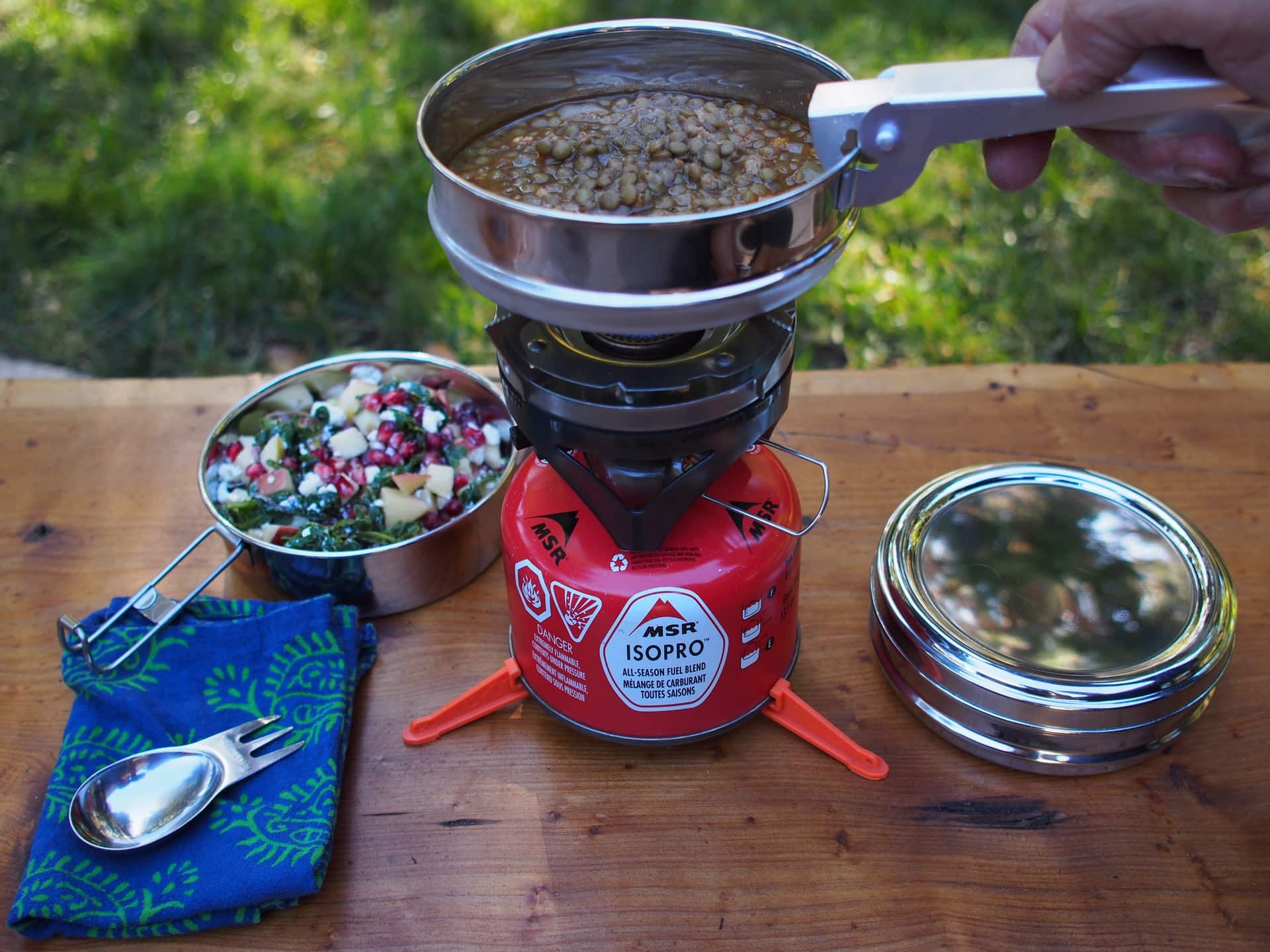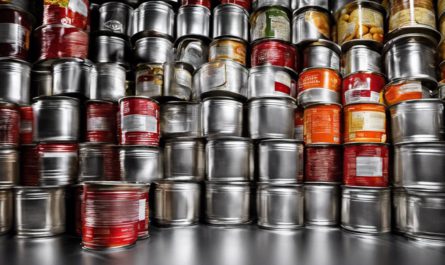Detecting spoiled canned food is a crucial skill for safeguarding your health and avoiding unnecessary risk. As an integral part of the global food supply, canned foods are ubiquitous in pantries worldwide, renowned for their longevity, convenience and the diversity of options available. However, despite their sturdy and lasting design, canned foods aren’t fail-proof and can still succumb to spoilage. This essay seeks to empower you with fundamental knowledge of interpreting canned food expiration dates, discerning visible signs of spoilage, and adopting safe handling and storage practices.
Table of Contents
Understanding Canned Food Expiry

Understanding ‘Sell By’, ‘Best By’ and ‘Use By’ Dates
When you pick a can of food from the shelf, one of the first things you notice is usually the date. These dates aren’t all the same: you might find ‘sell by’, ‘best by’, and ‘use by’ printed on the can. Let’s decode these three dates to understand what they signify.
A ‘sell-by’ date chiefly indicates the last day a store should sell the product, but it does not mean that the food is dangerous to eat after this date. The purpose is to ensure stores keep their stock fresh and rotated. If you purchase a can with this date, it’s crucial to store it properly tob ensure the food inside remains good.
A ‘best-by’ date, on the other hand, signifies when a product will retain its best flavor or quality. It is a quality rather than a safety standard. Items consumed after this date are likely safe, but they may not taste as good as they would have before.
Finally, a ‘use-by’ date is the last day recommended for the use of the product while at peak quality. This term is used by manufacturers to suggest when to consume their product to enjoy it at its best quality.
Determining How Long Canned Food Is Safe to Consume
Now that we know the differences between these dates, let’s examine how long past these dates canned food remains safe to eat. Most canned foods have a shelf life of two years from the date of processing, and some can last up to five years. This shelf life can vary with the type of food, can size, and processing method.
However, a crucial aspect of ensuring canned food safety is storage. Store canned goods in a cool, dry area below 85 degrees. Keeping canned goods at temperatures over this limit can hasten spoiling.
Irrespective of the dates printed on the can, be cautious if you notice any signs of spoilage such as bulging, leakage, rust, or deep dents. If the food gives off a strange odor, or if the liquid inside is cloudy in a non-creamy food item, it may indicate it has spoiled. Under such circumstances, it is best to discard the food item regardless of what the date on the label suggests.
Observing Signs of Spoiled Canned Food
Can safety also involves being aware of signs of spoilage. Inspect the outside of the can thoroughly. If you notice deep dents or bulging lids, it indicates that bacteria might be growing inside the can. Open bulging cans with caution as they may spurt content contaminated with bacterial toxins.
Once the can is opened, pay attention to your senses. The smell, color, or texture of the food can indicate if the food has gone bad. If there is a strange or pungent smell, cloudy liquid, or unusual color or texture, do not take any risks and discard the can. Remember, when in doubt, it’s better to be safe than sorry.
Signs of Spoilage in Canned Food

Can Condition
One of the primary signs of spoiled canned food is the condition of the can it is sealed within. If the can appears to be swollen or bloated, this can be an indicator of bacteria within the product that is releasing gases and inflating the can from the inside. Similarly, if the can is leaking, this suggests that the integrity of the can has been compromised, allowing potentially harmful bacteria to enter. Also, rust or dents on the can could denote a possible breach in the can’s seal and potential food spoilage.
Odor After Opening
Upon opening the can, take a moment to recognize any unusual smells. Spoiled food often has a strong, unpleasant odor. If the canned food smells different than you expect, it may be a sign that it has spoiled. This could be a sour, moldy, or rotten smell. Note that some canned foods have a slightly metallic smell when first opened which is normal. However, any pronounced bad odor can be a sign of spoilage and the food should not be consumed.
Color and Texture
Inspect the color and texture of the food in the can. If the food has an abnormal color, this may be a sign of spoilage. For instance, if a vegetable that is usually bright green has turned brown or black, do not consume it. Similarly, the texture of the food can tell you a fair amount about its status. For example, if soft foods have become hard or if normally firm foods are now mushy, discard the can.
Cloudy Liquid
A change in the clarity of the liquid within the can could also indicate food spoilage. While certain canned goods, like beans or corn, might naturally have a somewhat cloudy appearance due to the starchy liquids they’re packed in, other items like fruits or vegetables in water or brine should be relatively clear. If the liquid in the can has turned cloudy, or if you notice floating particles that don’t belong, this could be a sign that the food has spoiled.
Remember that when in doubt, it’s always safer to throw the questionable canned food out. It is not worth the risk of food poisoning.
Prevention and Safe Handling

Storing Canned Food Safely
Ensure that all canned goods are stored in a cool, dry place. Temperature fluctuations can dent or even rupture the can, which may lead to spoiling. The ideal temperature range for storing canned foods is between 50 to 70°F (10 to 21°C). Avoid storing canned goods near heat sources such as furnaces, stoves, and hot plumbing pipes, which can cause the can’s metal to deteriorate, compromising the food’s safety.
Preventing Spoilage
Before using canned goods, check the physical state of the can. Bloating, bulging, severe dents and leaks can be signs of spoilage. Inspect the can’s surface for any signs of rust as it can compromise the can’s hermetic seal, which helps preserve the food. Rotate your canned foods; use the oldest cans first to ensure freshness.
Recognizing Spoiled Canned Food
In some cases, spoilage might be obvious. A can that has swollen or bulged outwards is a telltale sign of bacterial activity. When opening the can, if you see a strange color or texture, or if there’s an off-putting smell, discard it immediately. Odd or bad tastes are another indication that the canned food may be spoiled.
Handling Suspected Spoiled Canned Food
If you suspect that your canned food has spoiled, the safest course of action is to dispose of it properly. Do not taste or consume suspect canned food. When disposing of possibly spoiled canned food, ensure that it is out of reach of children and pets.
Health Risks of Consuming Spoiled Canned Food
Consuming spoiled canned food can pose serious health risks, including food poisoning. The most serious risk associated with spoiled canned food is botulism, a potentially deadly disease caused by the bacteria Clostridium botulinum. This bacterium thrives in low-oxygen environments such as a sealed can and produces toxins that can cause paralysis and death if ingested.
Reacting to Suspected Food Poisoning
In case of suspected food poisoning, seek immediate medical attention. If possible, bring the suspected food product to the doctor or hospital. Documentation, including your symptoms, how much and when you consumed the suspected food, and how the food was stored and prepared, can also be helpful for medical professionals in diagnosing and treating foodborne illness.
Final Thoughts About Detecting Spoiled Canned Food

Armed with the insights shared, you are now better equipped to navigate your pantry with an informed perspective. You can confidently decipher what ‘best by’, ‘sell by’ and ‘use by’ terms mean, understand when it’s safe to consume canned food post these date indications, and recognize the tell-tale signs of spoilage. Above and beyond, understanding how to safely handle and store canned food not only keeps it fresh for longer, but also contributes to ensuring the health and well-being of all those consuming it. Remember, when in doubt, it’s better to err on the side of caution by disposing of questionable canned food to prevent any health complications.
Related Reading

17 Items To Have In Your Survival Go Bag Right Now
Master Dehydrated Camping Meals – Essential Ingredients Guide
Outdoor Personal Hygiene – 7 Hacks for Outdoor Activities To Stay Clean, Stay Healthy
You’re Stranded In a Snowstorm and Your Smartphone’s Battery is Dying



